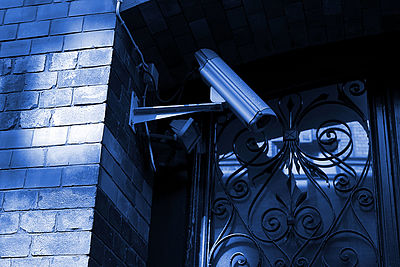Difference between revisions of "CCTV"
(update) |
(FBI cams) |
||
| Line 11: | Line 11: | ||
The "the total failure of CCTV to deter people from committing crimes in the first place"<ref>http://www.theguardian.com/technology/2011/aug/17/why-cctv-does-not-deter-crime</ref> has not deterred the ever wider deployment of CCTV, suggesting that other motives might be driving this technological roll out. | The "the total failure of CCTV to deter people from committing crimes in the first place"<ref>http://www.theguardian.com/technology/2011/aug/17/why-cctv-does-not-deter-crime</ref> has not deterred the ever wider deployment of CCTV, suggesting that other motives might be driving this technological roll out. | ||
| − | ==Control== | + | ==Control of access to CCTV footage== |
| − | CCTV evidence, although it ''could'' be made publicly available, for example, by being live streamed to the [[internet]], is generally under the control of the few who set up the systems. Even where these are public authorities, spending public money and nominally acting for the good of the public | + | CCTV evidence, although it ''could'' be made publicly available, for example, by being live streamed to the [[internet]], is generally under the control of the few who set up the systems. Even where these are public authorities, spending public money and nominally acting for the good of the public because it is controlled by a central authority, the footage tends to remain under tight control, only released on an ad hoc basis when it suits the purposes of those who set up the cameras. |
| − | because it is controlled by a central authority, the footage tends to remain under tight control, only released on an ad hoc basis when it suits the purposes of those who set up the cameras. | + | |
| + | ===Secrecy of camera locations=== | ||
| + | In 2016 a federal judge blocked the disclosure of where the [[FBI]] has attached surveillance cams on Seattle utility poles.<ref>http://arstechnica.com/tech-policy/2016/06/fbi-says-utility-pole-surveillance-cam-locations-must-be-kept-secret/</ref> | ||
=='Missing CCTV' footage== | =='Missing CCTV' footage== | ||
Revision as of 16:22, 18 June 2016
(mass surveillance) | |
|---|---|
 | |
Contents
Official narrative
CCTV is originally about monitoring people for their own sake. Crime prevention is a key driver behind the implementation of CCTV cameras.
Problems
The "the total failure of CCTV to deter people from committing crimes in the first place"[1] has not deterred the ever wider deployment of CCTV, suggesting that other motives might be driving this technological roll out.
Control of access to CCTV footage
CCTV evidence, although it could be made publicly available, for example, by being live streamed to the internet, is generally under the control of the few who set up the systems. Even where these are public authorities, spending public money and nominally acting for the good of the public because it is controlled by a central authority, the footage tends to remain under tight control, only released on an ad hoc basis when it suits the purposes of those who set up the cameras.
Secrecy of camera locations
In 2016 a federal judge blocked the disclosure of where the FBI has attached surveillance cams on Seattle utility poles.[2]
'Missing CCTV' footage
The widespread use of CCTV could provide valuable evidence in the case of acts of terrorism, though it is more notable for is absence in this respect. Specifically, in the following instances:
- 1995: Oklahoma City bombing - In response to a FOIA request, the FBI claims to have lost the tapes of the OKC bombing[3][4]
- 1997: Diana Princess of Wales/Death - No CCTV footage of the crash has been made available. It is unclear whether any exists.
- 2001: 9-11/Pentagon - The FBI moved quickly to confiscate all CCTV footage from nearby cameras for reasons of "National security". None has ever been released. Of the Pentagon's (presumably many) CCTV cameras, footage from only a single camera has been released[When?] - and that is missing a crucial frame.
- 2005: 7 July 2005 London bombings - Verint systems took control of London Transport's CCTV 10 months before the attacks, and have never released any footage, claiming that none of the relevant cameras were working. Some frames from station CCTV cameras have been released, which show the alleged bombers, although their authenticity and relevance is disputed.
Incorrect footage
CNN aired CCTV which it claimed were of the 2016 Mass murder in Brussels, but which were of a different incident.
Rating
A very short page, but one with many links to deep events in which CCTV footage was unavailable, lost or falsified.
References
- ↑ http://www.theguardian.com/technology/2011/aug/17/why-cctv-does-not-deter-crime
- ↑ http://arstechnica.com/tech-policy/2016/06/fbi-says-utility-pole-surveillance-cam-locations-must-be-kept-secret/
- ↑ http://www.truthistreason.net/fbi-conveniently-cant-find-oklahoma-city-bombing-videos-after-foia-request
- ↑ http://news.intelwire.com/2011/07/in-latest-filing-fbi-says-it-cant-find.html